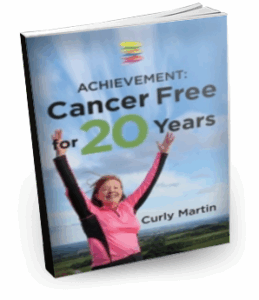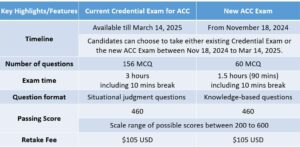We are pleased to share an article entitled “From Unconscious to Conscious: Paradigm Shifts for Planetary Wellbeing“ written by Alina Nikishina.

As professional coaches, we excel at helping clients transform unconscious patterns that hold them back. This work empowers our clients to break free from repetitive cycles and embrace meaningful change.
What if we could extend our impact further? What if we could inspire transformative shifts in the health of our planet and all living beings by examining these unconscious patterns within ourselves—and then helping our clients do the same?
Coaches hold immense potential to influence systemic change. Our work inherently revolves around uncovering the beliefs and habits that shape behavior, and the current climate crisis is no exception. By expanding our understanding of the unconscious values and paradigms that perpetuate environmental harm, we can play a vital role in addressing one of the world’s greatest challenges.
Uncovering the Interconnections
For years, my personal contribution to addressing climate change was limited to efforts like recycling, mindful consumption and purchases, and occasional donations. While these actions mattered to some degree, they only scratched the surface.
A pivotal shift occurred when I began exploring activism. I came to understand that climate change is deeply intertwined with interdependent systems—including extractive economic practices, political structures, and systemic inequities such as racism. These systems are upheld by values and narratives we unconsciously absorb simply by existing within them.
This realization led me to a profound conclusion: significant, lasting change requires us to challenge these systems at their roots. To do so, we must join grassroots movements and embrace new paradigms about our relationship to nature, money, social justice, and the economy. These paradigms have the power to reshape our values, actions, and ultimately, our shared reality.
An Opportunity for Coaches
As coaches, we have a unique opportunity to support clients in this transformative work. Raising awareness about the unconscious patterns driving unsustainable behaviors can empower individuals to align their values and actions with a healthier, more regenerative future. When people recognize how systemic values affect planetary health, they are better equipped to be an active part of the movements that are creating the sustainable systems of the future. They’re also able to start making more meaningful and effective contributions at the individual level.
Business leaders, for example, might implement practices prioritizing equity and the well-being of all living beings over short-term profits. Communities might collaborate to build systems rooted in sufficiency and sustainability rather than scarcity and endless growth. This shift begins with awareness—and as coaches, we are skilled at fostering it.
Examining Toxic Myths
One way to explore the subconscious paradigms contributing to today’s crises is by examining the three “toxic myths” outlined in Lynne Twist’s book “The Soul of Money”:
- “There’s not enough.” This scarcity mindset drives competition, hoarding, and overconsumption. It fosters fear that we—or those we care about—will be left behind. On a personal level, it can reinforce feelings of not feeling enough, blocking us from focusing on what truly sustains us and driving us to “fill the void” with things or temporary experiences.
- “More is better.” A companion to scarcity thinking, this mentality fuels consumerism, pollution, and unsustainable economic growth. It ignores real ecological limits and prioritizes profit over planetary health, exacerbating the climate crisis.
- “That’s just the way it is, and there’s nothing you can do about it.” This myth fosters resignation, convincing us that systemic problems are too complex to solve. It discourages action and perpetuates the status quo.
Twist counters these myths with the principle of sufficiency: the idea that when we resist hoarding and embrace collective well-being, we discover the natural abundance available to us. We must remember that when we don’t hoard, there is more than enough to go around, and also, things have not always been the way they are today. We created these systems, and together, we can change them.
A Personal Journey Toward Awareness
Exploring these types of concepts has profoundly shifted my approach to life and work. Becoming conscious of the “water I’ve been swimming in” has allowed me to align my business practices with my values and help clients uncover the subconscious paradigms holding them back from making a greater impact in the world and living more fulfilling lives.
I often have conversations with my entrepreneurial clients about what “enough” means to them when it comes to finances and how they can incorporate their values into their marketing and other business practices so that their impact goes beyond the services and products they provide.
My personal journey has also included:
- Exploring regenerative business principles and practices, racist unconscious biases, and systemic privileges that influence climate change,
- Connecting nearly all my business activities to funding causes aligned with the global Sustainable Development Goals through the B1G1 organization (and sharing those impacts with clients so that they’re inspired to do the same), and
- Joining various grassroots movements to engage in conversations around systemic change topics and inspire collective action.
These steps reflect my commitment to aligning my actions with the regenerative systems we so urgently need. While my actions alone are not enough to drastically impact our climate in the short-term, I trust that by being a part of larger groups and doing my own inner work, I’m helping lay an important foundation for new systems of future generations that will include the wellbeing of our planet and her inhabitants. You can too.
An Invitation to Take Action
It starts with you making a brave, conscious choice to curiously and gently explore your own unconscious paradigms that contribute to upholding the systems of today. The good news is, there are a lot of organizations and movements that are well on their way to helping folks do this work and take real action in the world.
A resource that I recommend starting with is the Game Changer Intensive program by the Pachamama Alliance. It will not only guide you through developing a resourceful mindset and identity for our times ahead, but it’ll also give you practical guidance about what you can do about climate change and other global challenges. This program has a lot of “world-rocking” perspectives that will provide a jumping off point to deeper exploration of the subconscious paradigms I mentioned earlier.
This education and awareness will allow you to much more easily guide other people and start having these types of conversations with your clients so they can join the movement. You’ll be able to explore values and goals from a different perspective going forward, which will impact the outcomes created in the world.
So, I leave you with this question: How could you, as a coach, make even more impact on climate change that ever before? The possibilities are endless once we become conscious of the systems we navigate—and take action to transform them.
Let’s continue the conversation by connecting with your colleagues on our Facebook page



